One of the most charming destinations on Rhodes, Seven Springs (Epta Piges) offers a cool, magical landscape, a real oasis, even in the heat of high summer, a charming retreat in the most lavish of Mediterranean greens. Water flows out of the springs all year around, which is forming a small lake. The lake remains replenished thanks to a dam built by the Italians, in order to provide the nearby settlement Kolympia with fresh water.
The access to the lake at seven springs is very popular with visitors and offers a unique experience. If you feel adventurous enough, you can to walk through the 186 meters long and 2.5 meters high and very narrow dark tunnel to get to the lake. This tunnel, constructed back in 1931, leads the water that flows out of the seven springs and from the river Loutanis into the lake.
Walking through the dark tunnel with your feet in the running fresh water, is an exciting experience, but don't try it if you are claustrophobic. As an alternative route you can simply follow a walking path, right above the tunnel, to the lake. For walking through the tunnel we recommend light shoes or flip-flops as you will have to walk though ankle high running waters. If it makes you feel more comfortable, you can also use a flashlight.
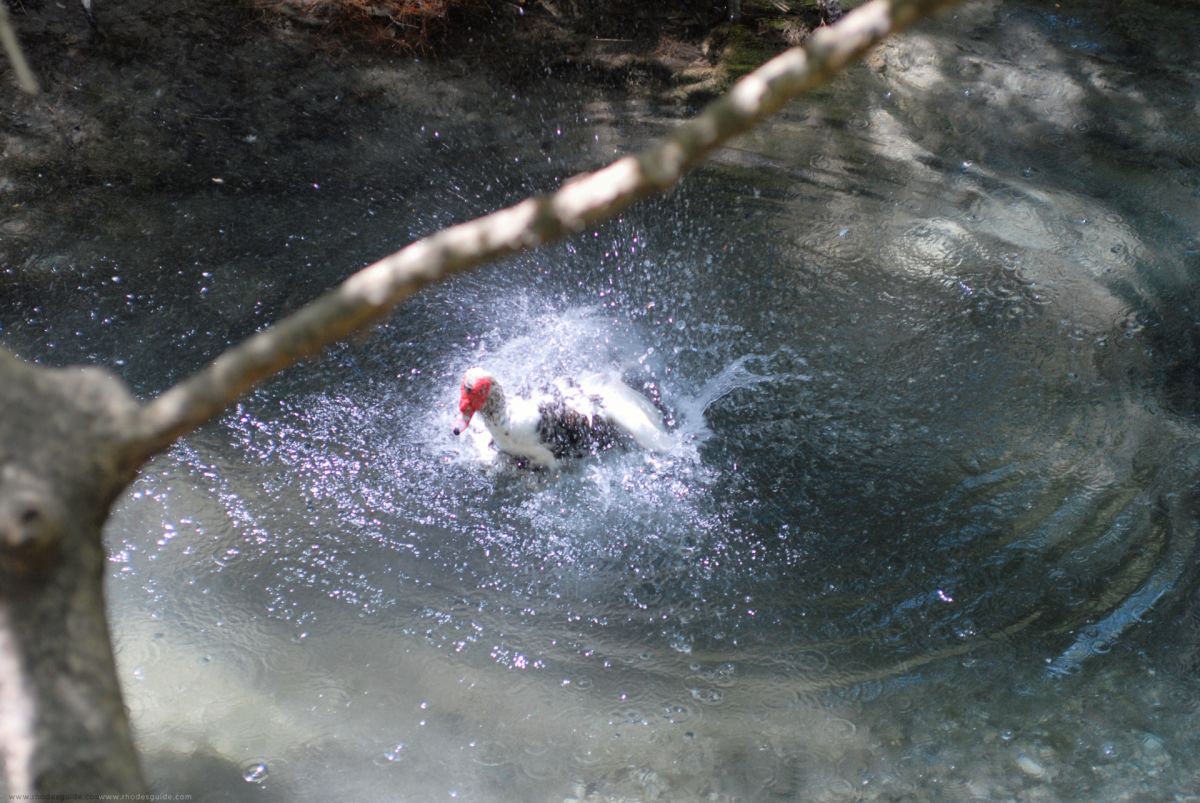
The lake at Seven Springs is also suitable for swimming. Just keep in mind that the waters are quite cold (even in the hottest summer months), and that since the water is fresh there is less water buoyancy.
The area of Seven Springs and the nearby forests are also suitable for walking and trekking. It is always recommended that you carry a bottle of fresh water with you. For walking in the areas around seven springs it is also important that you wear sturdy shoes.
The historic restaurant - taverna at Seven Springs is also worth your visit. Here you will find food cooked with local ingredients from local sources which are prepared based on traditional Rhodian and Greek recipes.
The area belongs to a Natura 2000 protected zone (GR4210006) together with the Valley of Butterflies (Petaloudes) and Mt. Profitis Elias.
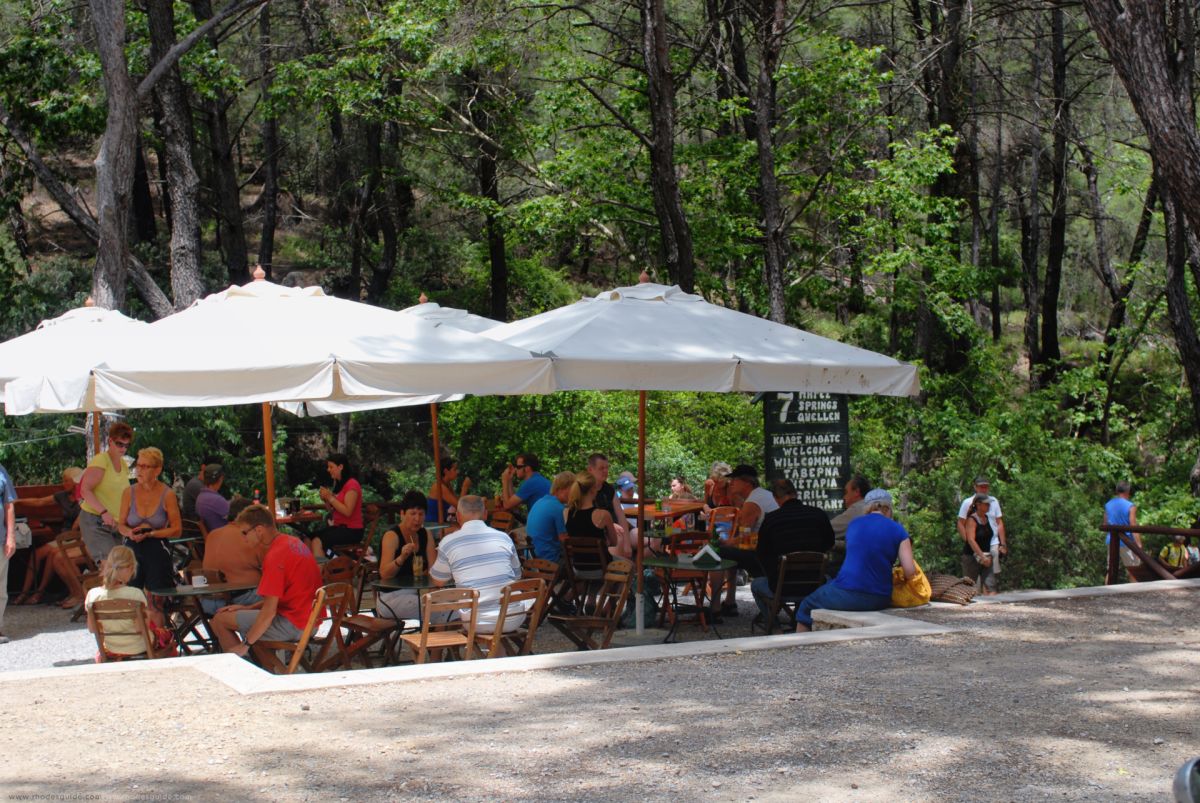
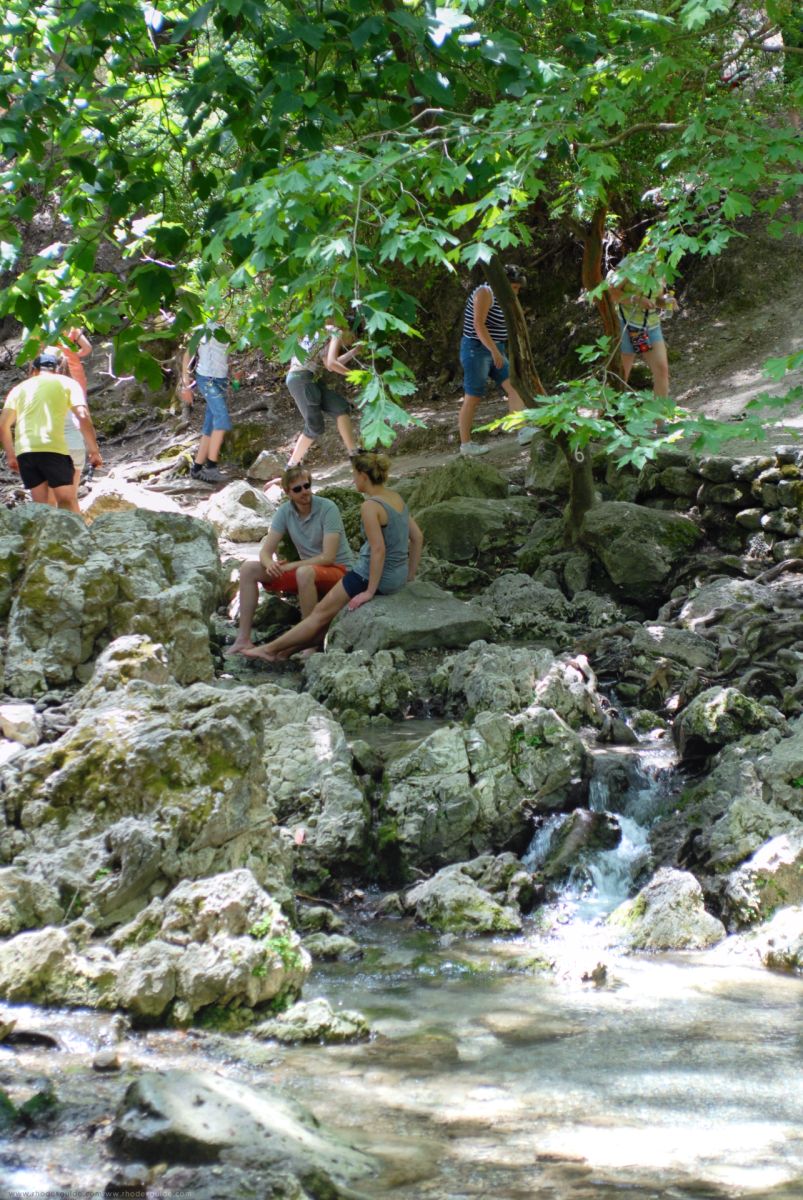
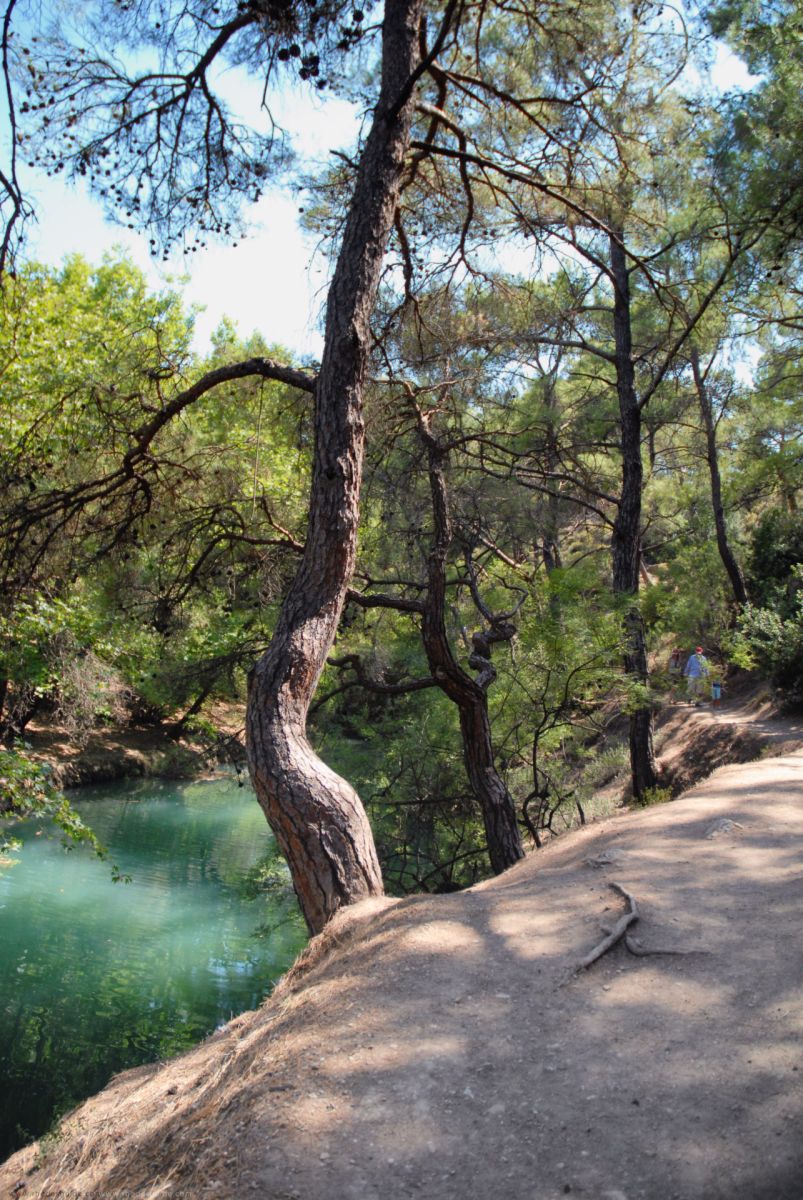
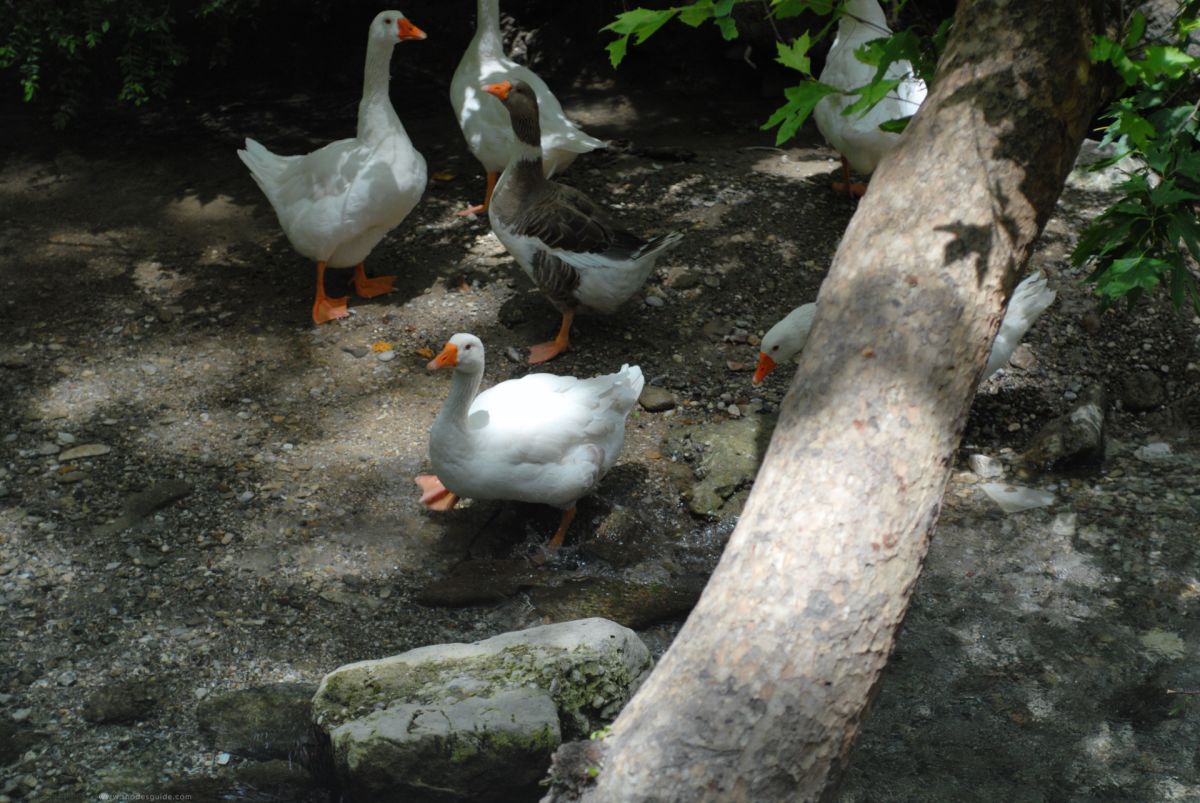


 English
English
 Deutsch
Deutsch
 Ελληνικά
Ελληνικά